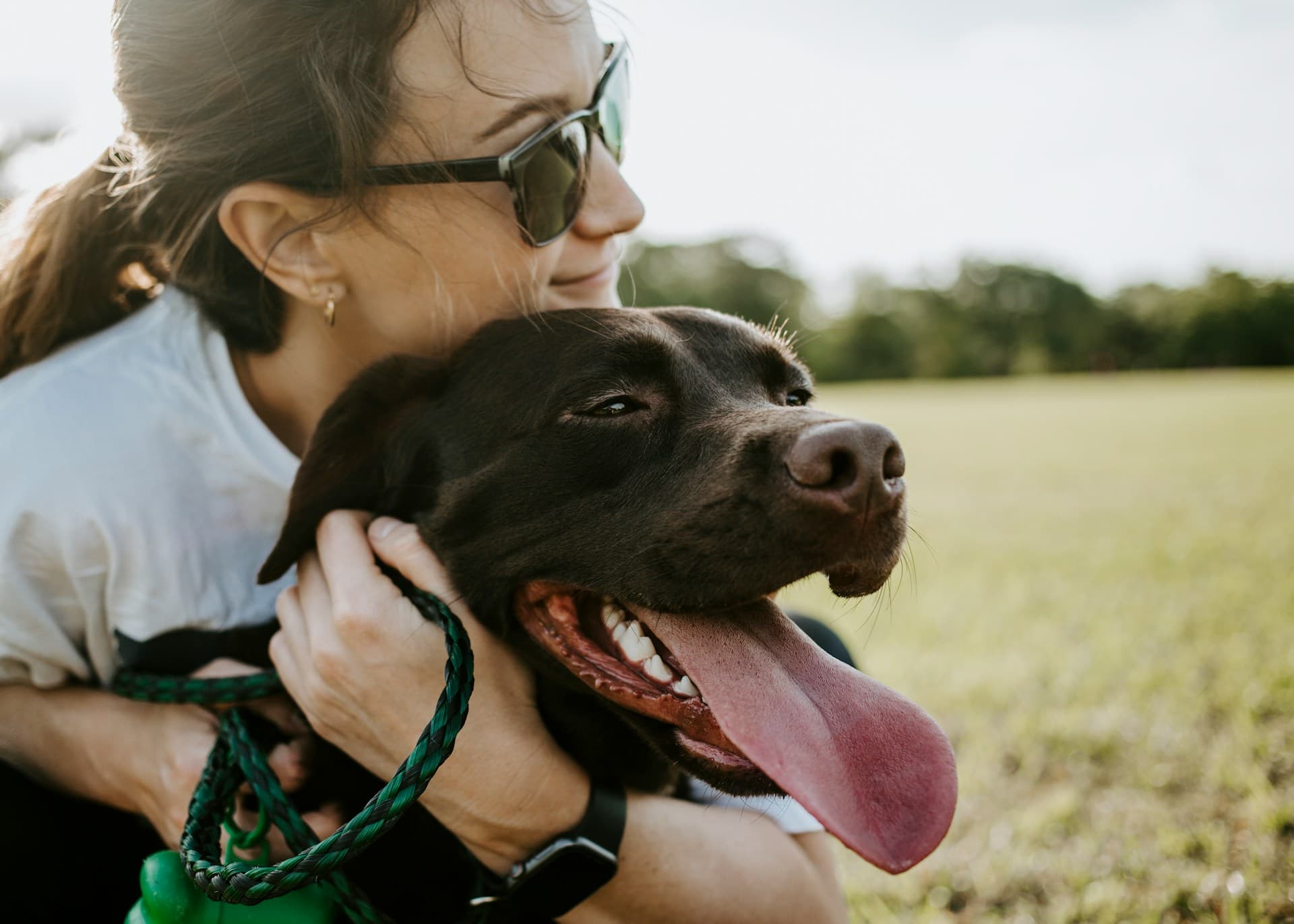The Difference Between Coughing, Vomiting, and Gagging in Dogs

Introduction to Dog Gagging and Coughing
- Gagging: This is a reflex action where the back of the throat contracts, forcing saliva or food up but not out of the mouth. It can be caused by foreign objects stuck in the throat, irritation from phlegm, or dental issues.
- Coughing: Unlike gagging, coughing involves forceful expiratory efforts and is often a response to irritants in the airways, such as smoke or allergens.
Causes of Dog Gagging
- Foreign Objects: Small toys, bones, or string can become lodged in a dog’s throat, leading to gagging. This can cause discomfort and blockage.
- Dental Issues: Periodontal disease or oral tumors can irritate the throat, prompting gagging behavior.
- Phlegm Build-Up: Excess mucus in the back of the throat from respiratory infections can trigger gagging.
Symptoms of Dog Gagging and Coughing
- Gagging: You may notice your dog making retching sounds or trying to spit out objects. They might also paw at their mouth.
- Coughing: Persistent coughs, especially if they are dry or accompanied by other symptoms like sneezing or runny nose, can indicate underlying respiratory issues.
These symptoms should be monitored closely as they could signal more serious health conditions that require veterinary attention.
Causes of Dog Gagging
- Inflammation Around the Larynx: One of the primary causes of gagging in dogs is inflammation around the larynx, commonly referred to as laryngitis. This condition can be caused by various factors such as allergies, infections, or irritants like smoke or dust. When the larynx becomes inflamed, it swells and narrows the airway, making it difficult for the dog to breathe normally. Symptoms may include coughing, gagging, and a change in voice.
- Infectious Problems: Infectious agents such as bacteria, viruses, or parasites can also lead to gagging in dogs. For instance, Bordetella bronchiseptica, a common cause of kennel cough, can irritate the throat and larynx, leading to persistent gagging. Additionally, viral infections like parainfluenza or canine distemper can affect the respiratory system, causing inflammation and discomfort that result in gagging.
- Laryngeal Paralysis: Laryngeal paralysis is a condition where the muscles controlling the movement of the larynx become weakened or paralyzed. This affects the ability to open and close the airway effectively during breathing and swallowing, leading to frequent gagging and choking episodes. The exact cause of laryngeal paralysis can vary; it may be congenital (present from birth) or develop as a result of aging or other underlying health issues such as hypothyroidism.
These conditions require prompt veterinary attention to determine the exact cause and appropriate treatment for your dog’s gagging issue. Regular check-ups and addressing any potential irritants in your pet’s environment can help manage these symptoms effectively.
Symptoms of dog gagging and coughing can vary widely, but it is crucial to recognize specific indicators that your pet might be experiencing distress. One key factor to monitor is whether the dog remains bright and alert. A bright and alert demeanor suggests that the dog’s overall condition is good; however, if they show signs of lethargy or disorientation, this could indicate a more serious issue.
Breathing normally is another critical aspect to observe. Healthy dogs should breathe calmly with no visible difficulties or rapid breathing patterns. Persistent coughing or gagging accompanied by labored breathing can be alarming and may warrant immediate veterinary attention.
Eating and drinking as expected are also important signs of your dog’s well-being. If a dog continues to consume food and water normally, it typically indicates that their digestive system is functioning properly. However, reduced appetite or difficulty eating can signal underlying health issues such as respiratory problems, infections, or other conditions affecting the throat or airways.
In summary: - Bright and Alert: The dog should appear active and responsive. - Breathing Normally: Look for calm breathing without any signs of distress. - Eating and Drinking: Ensure they are consuming food and water as usual.
When to Be Concerned About a Dog Coughing and Gagging
- Persistent Symptoms: A persistent cough or gag reflex in dogs can be a sign of serious underlying health issues. While occasional coughs might not indicate anything severe, if the behavior persists, it is crucial to seek veterinary attention promptly. Persistent coughing could be due to conditions such as heart disease, respiratory infections, or foreign body ingestion.
- Difficulty Breathing: Difficulty breathing alongside coughing and gagging in dogs should never be ignored. This symptom can manifest as rapid panting, wheezing, or labored respiration. Respiratory distress may indicate a severe condition requiring immediate medical intervention. Conditions like pneumonia, asthma, or bronchitis could cause this issue.
- Vomiting Blood or Bile: If you observe your dog vomiting blood or bile while coughing or gagging, it is an alarming sign that warrants urgent veterinary care. Vomiting blood can suggest internal bleeding from the gastrointestinal tract, potentially due to conditions like gastric ulcers or obstruction by a foreign object. Bile vomit might indicate a problem in the liver or pancreas. Both scenarios are critical and require prompt diagnosis and treatment.
Diagnosing the cause of a dog’s coughing and gagging involves several key steps to ensure an accurate diagnosis and appropriate treatment. The initial step is a thorough physical examination, which includes observing the dog’s respiratory rate, heart sounds, and examining the nasal passages for any visible abnormalities such as discharge or foreign objects.
- Physical Examination: During this assessment, veterinarians will listen to the lungs using a stethoscope to detect any abnormal breath sounds, such as wheezing or crackles. They may also palpate the chest area to check for any signs of inflammation or pain. Additionally, visual inspection and auscultation (listening with a stethoscope) are crucial in identifying potential issues like heart murmurs or lung consolidation.
Laboratory tests play a significant role in diagnosing underlying conditions that could be causing coughing and gagging. These tests can include blood work to check for signs of infection or inflammation, fecal exams to rule out parasites, and urine analysis to assess kidney function.
- Laboratory Tests: Common laboratory tests include complete blood count (CBC) to evaluate red and white blood cells, which can indicate infections or inflammatory conditions; biochemical profiles to check liver and kidney function; and serology for specific diseases such as heartworm disease. Additionally, testing for respiratory pathogens like Bordetella bronchiseptica or Parainfluenza virus may be necessary.
Imaging studies are essential in visualizing internal structures that might not be apparent during a physical examination. X-rays can reveal issues such as pneumonia, foreign objects in the airways, or heart enlargement. In some cases, advanced imaging techniques like CT scans or ultrasound might be required to provide more detailed information about the condition of the lungs and surrounding tissues.
- Imaging Studies: X-rays are often the first line of imaging for dogs with respiratory symptoms, as they can show signs of pneumonia, fluid accumulation in the lungs, or changes in the shape and size of the heart. CT scans offer even greater detail and can help diagnose complex conditions such as tumors, abscesses, or bronchial abnormalities. Ultrasound is particularly useful for assessing the pleural space (the area between the lung and chest wall) and can detect fluid accumulation or masses.
By combining these diagnostic methods—physical examination, laboratory tests, and imaging studies—a veterinarian can accurately identify the cause of a dog’s coughing and gagging, leading to effective treatment and improved patient outcomes.
Treatment for dog coughing and gagging can vary depending on the underlying cause, but a comprehensive approach often involves multiple strategies. Antibiotics are commonly prescribed to address bacterial infections, such as those caused by Bordetella bronchiseptica or Streptococcus zooepidemicus, which are common in kennel cough. These antibiotics help eliminate the infection and reduce the severity of symptoms.
Anti-inflammatory medication is another crucial component in managing dog coughing and gagging. Nonsteroidal anti-inflammatory drugs (NSAIDs) like meloxicam can be used to alleviate inflammation and pain associated with conditions such as tracheal collapse or laryngeal paralysis. These medications not only provide symptomatic relief but also prevent further irritation of the airways.
In certain cases, surgery may be necessary if conservative treatments are ineffective. For instance, dogs with severe tracheal collapse might require surgical intervention to repair or reinforce the trachea. Similarly, laryngeal paralysis often necessitates a procedure known as arytenoid lateralization, which helps open the airway and improve breathing.
Lastly, supportive care plays a vital role in managing symptoms and promoting overall well-being. This includes maintaining proper hydration, providing a clean and comfortable environment, and ensuring the dog receives adequate rest. Humidifiers can also be beneficial in keeping the air moist, which is particularly helpful for dogs with respiratory issues. Additionally, avoiding smoke, dust, and other irritants is essential to prevent exacerbation of symptoms.
By combining these treatment modalities, veterinarians can effectively address the complex causes of coughing and gagging in dogs, ensuring a more comfortable recovery and improved quality of life.
Prevention measures are crucial in addressing the issue of dog coughing and gagging. Ensuring that your pet receives appropriate vaccinations is one of the most effective ways to protect them from common respiratory infections that can cause these symptoms. For instance, core vaccines such as those against canine parainfluenza, adenovirus, and distemper are essential in preventing severe respiratory diseases. These vaccines not only help in building immunity but also contribute significantly to reducing the severity of any potential illness.
Regular check-ups with a veterinarian are another critical prevention measure. During these visits, your dog’s overall health is evaluated, including their respiratory system. Early detection of any abnormalities can lead to timely intervention and treatment, preventing complications that may cause coughing or gagging. Additionally, regular check-ups allow for the monitoring of vaccination status, ensuring that booster shots are administered when necessary.
Lastly, avoiding exposure to infected dogs is a vital step in preventing coughing and gagging in your pet. This means keeping your dog away from areas where other unvaccinated animals congregate, such as dog parks or kennels with poor hygiene practices. If you do take your dog to public places, always observe their interactions with others closely and ensure they maintain a safe distance. By minimizing contact with potentially infected dogs, you can significantly reduce the risk of your pet contracting respiratory illnesses that could lead to coughing or gagging.
Causes of Laryngeal Paralysis in Dogs
Laryngeal paralysis (LP) is a common condition affecting dogs, characterized by the weakening or failure of the muscles that control the vocal cords. There are several key causes of laryngeal paralysis, each contributing to its onset:
- Degenerative Nerve Disorders: This is one of the primary causes in older dogs, particularly large breeds like Labrador Retrievers and German Shepherds. The condition arises from a gradual degeneration of the nerves that control the vocal cords.
- Congenital Factors: Some dogs are born with laryngeal paralysis, though this is less common than acquired forms. Breeds such as Dalmatians and Irish Setters have higher incidences of congenital LP.
- Neoplasia or Cancer: Tumors in the neck area can compress the nerves controlling the vocal cords, leading to paralysis.
- Trauma or Injury: In some cases, laryngeal paralysis can result from physical trauma or injury to the throat region. This may occur due to accidents or surgical procedures.
Symptoms of Laryngeal Paralysis in Dogs
The symptoms of laryngeal paralysis are often quite noticeable and typically worsen over time. Key signs include:
- Dyspnea (Labored Breathing): Difficulty breathing, especially during exercise or when the dog is excited.
- Coughing: A dry, hacking cough that may occur more frequently in hot or humid weather.
- Exercise Intolerance: Dogs with laryngeal paralysis often have trouble tolerating physical activity and show signs of fatigue quickly.
- Vocal Changes: Reduced or absent bark volume, as the vocal cords do not function properly.
- Aspiration Pneumonia: Due to weakened protective reflexes in the throat, dogs may inhale food or water into their lungs, leading to respiratory infections.
Treatment Options for Laryngeal Paralysis
The treatment options for laryngeal paralysis vary depending on the severity of the condition and the dog’s overall health. Common approaches include:
- Medications: Corticosteroids can help reduce inflammation and improve breathing in mild cases.
- Surgical Intervention: In more severe cases, a surgical procedure called a lateral arytenoid suture (LAS) or bilateral arytenoid repositioning is often recommended. This surgery helps to keep the vocal cords open, improving airflow.
- Lifestyle Adjustments: Managing the dog’s environment and activities can also be beneficial. Keeping dogs cool in hot weather and avoiding strenuous exercise can help reduce symptoms.
- Supportive Care: Regular check-ups with a veterinarian are crucial for monitoring the condition and adjusting treatments as needed.
Dog Gagging and Coughing in High-Risk Breeds
High-risk dog breeds, such as Pugs, French Bulldogs, and Shih Tzus, are prone to various respiratory issues due to their flat faces and narrow airways. These breeds have a higher likelihood of experiencing symptoms like coughing and gagging compared to other dogs.
- Causes of Coughing and Gagging:
- Respiratory Issues: The primary causes include brachycephalic syndrome, which is characterized by a combination of anatomical abnormalities such as an elongated soft palate, narrow trachea, and stenotic nares. These issues can lead to increased airway resistance and respiratory distress.
- Allergies: Allergic reactions can also trigger coughing and gagging in high-risk breeds. Dogs with allergies may experience these symptoms when exposed to environmental allergens like pollen or dust mites.
- Infections: Upper respiratory infections, including kennel cough (bordetella), can cause persistent coughing and gagging. These infections often require prompt treatment to prevent further complications.
- Treatment Options for High-Risk Breeds:
- Surgical Interventions: For severe cases of brachycephalic syndrome, surgical procedures such as palatoplasty or tracheal stenosis correction might be necessary. These surgeries can alleviate airway obstructions and improve the quality of life for affected dogs.
- Medications: Antibiotics are often prescribed to treat bacterial infections, while antihistamines can help manage allergic reactions. Corticosteroids may also be used in cases where inflammation is present.
- Lifestyle Adjustments: Managing symptoms through lifestyle changes such as maintaining a healthy weight and avoiding strenuous activities can significantly reduce the severity of respiratory issues. Additionally, keeping the environment free from irritants like cigarette smoke or strong odors can help prevent exacerbation of symptoms.
By understanding these key points, pet owners and veterinarians can better address the specific needs of high-risk breeds to ensure their overall health and well-being.
The Role of Vaccinations in Preventing Dog Coughing and Gagging
Vaccinations play a crucial role in preventing various respiratory issues, including coughing and gagging, in dogs. They offer several benefits that contribute to the overall health and well-being of canines.
- Benefits of Vaccinations:
- Preventative Measures Against Diseases: Vaccinations protect dogs from diseases such as canine distemper, parainfluenza, and Bordetella bronchiseptica, which are common causes of coughing and gagging. For instance, the combination vaccine for canine distemper, adenovirus, and parvovirus (DHPP) not only prevents severe respiratory infections but also reduces the severity and frequency of associated symptoms.
- Enhanced Immunity: Regular vaccinations stimulate a dog’s immune system to recognize and fight off pathogens effectively. This ensures that when exposed to these diseases, their bodies can mount an immediate and effective response, thereby minimizing the chances of developing coughs or gagging episodes.
The Role of Vaccinations in Preventing Dog Coughing and Gagging
While vaccinations offer significant benefits, they also come with potential risks that pet owners should be aware of. Understanding these risks is essential to make informed decisions about a dog’s health care.
- Risks of Vaccinations:
- Immediate Reactions: Some dogs may experience mild reactions such as swelling at the injection site or localized itching shortly after vaccination, which usually resolve on their own within a few days.
- Serious Allergic Reactions (Anaphylaxis): Although rare, some dogs can suffer from severe allergic reactions that require immediate medical attention. Symptoms include difficulty breathing, vomiting, diarrhea, and in extreme cases, collapse.
- Vaccine-Associated Sarcomas: This is a serious concern where certain types of vaccines, particularly those containing adjuvants, may increase the risk of developing sarcomas at the injection site. While this is uncommon, it highlights the need for careful vaccine selection and administration.
The Role of Vaccinations in Preventing Dog Coughing and Gagging
Establishing a consistent vaccination schedule is crucial to ensuring that dogs remain protected against various respiratory ailments. Following recommended vaccination guidelines can significantly reduce the likelihood of coughing and gagging episodes.
- Importance of Vaccination Schedules:
- Initial Vaccinations: Puppies typically receive their first set of vaccinations between 6 and 8 weeks of age, with booster doses given every three to four weeks until they are about 16 weeks old. This ensures that the immune system is adequately primed during a critical period when it is most susceptible.
- Annual Boosters: Adult dogs usually require annual boosters for core vaccines like DHPP and rabies. However, some vaccines may need more frequent administration based on individual risk factors or geographical location.
- Consultation with Veterinarians: Regular check-ups and consultations with veterinarians are essential to tailor vaccination schedules according to a dog’s specific needs, health history, and lifestyle.
By adhering to these key points, pet owners can effectively utilize vaccinations as an important tool in preventing coughing and gagging episodes in their dogs.




